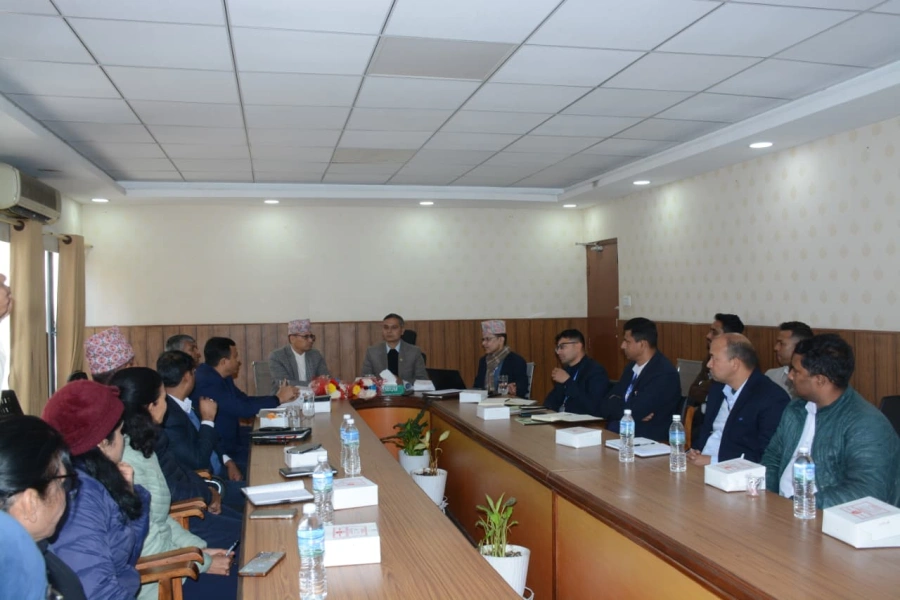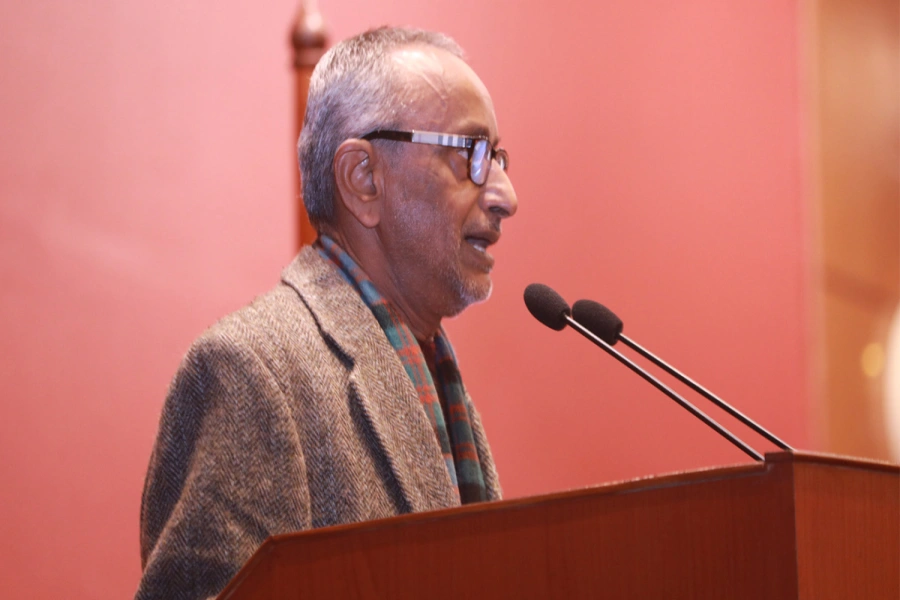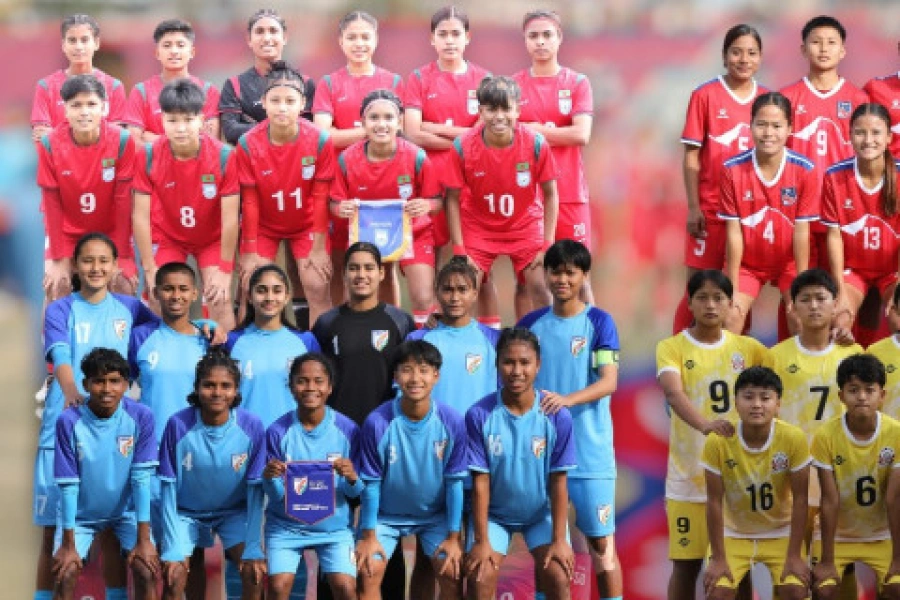As Nepal grapples with evolving educational needs and a rapidly changing job market, micro-credentials have emerged globally as a promising tool for flexible, skills-based learning. This article examines how these focused, verifiable learning achievements can be adapted to address Nepal’s unique socioeconomic challenges. It begins by tracing the global development of micro-credentials, then contextualizes their relevance within Nepal—particularly in bridging skills gaps, supporting the country’s large population of migrant workers, and promoting lifelong learning opportunities. The article also outlines a strategic roadmap for integrating micro-credentials into a national qualifications framework, drawing on international definitions and best practices. Ultimately, it argues that building a robust ecosystem for micro-credentials is essential for Nepal to enhance its education system and workforce competitiveness.
Rethinking Education for the 21st Century
In an era defined by rapid technological change, evolving labor demands, and heightened global competition, traditional education systems around the world are under increasing pressure to adapt. Nepal, too, finds itself at a pivotal crossroads. Its universities, vocational institutes, and policy frameworks are beginning to respond to the urgency for reform. However, to fully address its developmental challenges and unlock the potential of its workforce—particularly its youth and migrant populations—Nepal needs to look beyond incremental reforms. It must embrace transformative, scalable, and globally aligned solutions. Micro-credentials, small but powerful learning units focused on specific, in-demand skills, offer exactly such a pathway.
What Are Micro-Credentials and Why Do They Matter?
Micro-credentials are concise, skill-specific learning certifications that validate a learner’s proficiency in a clearly defined domain. Unlike traditional degrees, which require several years and cover broad academic areas, micro-credentials are sharply targeted and stackable. They offer both immediate value and long-term potential: learners can accumulate multiple credentials over time, combining them into larger qualifications or degrees. As defined by UNESCO in 2022, a micro-credential is a “record of a focused learning achievement that is assessed against clearly defined standards and awarded by a trusted provider.” This definition ensures comparability and quality, making them credible in both domestic and international contexts. It was adopted through a consultative and consensus-driven international process aimed at establishing a shared understanding and common framework for micro-credentials in education systems around the world.
A New Type of Learner
Just like elsewhere, today’s learners in Nepal increasingly represent a new category: individuals who balance education with earning a livelihood. Unlike traditional students who follow a linear “study now, work later” path, this new type of learner requires flexible, modular education that fits around work and life demands. Micro-credentials meet this need perfectly by enabling “earning while learning”—allowing learners to gain specific, job-relevant skills incrementally and immediately apply them in the workplace. This approach not only improves income potential but also fosters continuous professional growth and adaptability, essential in today’s dynamic economy.
A Brief History: The Global Emergence of Micro-Credentials
The concept of micro-credentials emerged in the early 2000s as digital technologies reshaped how education was delivered, accessed, and verified. Initially popular in the tech sector, companies like IBM, Microsoft, and Google issued digital badges certifying employees’ proficiency in specific software or systems. These online credentials recognized specific skills and could be shared digitally to showcase competencies, addressing the need for flexible, up-to-date learning in fast-evolving fields like IT and cybersecurity—areas where traditional degrees struggled to keep pace.
Simultaneously, Massive Open Online Courses (MOOCs) on platforms like Coursera, edX, and Udacity created new open-access learning opportunities. These platforms began offering certificates and “nano-degrees” in partnership with top universities and companies. For instance, Coursera collaborates with institutions like Stanford and companies like Google to deliver courses and professional credentials, marking a shift toward competency-based learning focused on what learners can do rather than where or how long they studied.
By the 2010s, organizations such as OECD, UNESCO, and the European Commission recognized micro-credentials as vital for lifelong learning and workforce development. The COVID-19 pandemic further accelerated their relevance as institutions sought modular, flexible, digital-first alternatives to traditional qualifications. In 2022, UNESCO issued a global definition of micro-credentials as quality-assured, focused learning records aligned with standards. Since then, many countries in Asia-Pacific, Europe, and Africa have referenced this definition to guide their strategies, promoting coherence and international recognition.
Tackling Nepal’s Low-Skills Trap in Foreign Employment
USAID launches Trade and Competitiveness Activity to improve co...

A significant portion of Nepal’s youth population seeks employment abroad, and the economy remains deeply dependent on foreign remittances. Yet many Nepalis migrate with minimal qualifications and find themselves in low-skilled, low-paid sectors. Micro-credentials offer a practical solution to this persistent low-skills trap by equipping prospective and current migrant workers with specific, job-relevant, and verifiable skills. These credentials can be earned flexibly and quickly, making them ideal for those with limited time and resources. When aligned with international standards, micro-credentials enhance the credibility of Nepali workers, increasing their access to better-paying, safer jobs and reducing their vulnerability to exploitation. By integrating micro-credentials into pre-departure training and providing opportunities for continued upskilling abroad, Nepal can support more dignified and upwardly mobile labor migration.
Addressing the Domestic Skills Gap
Nepal faces a persistent gap between what the education system delivers and what industries or businesses need. Key sectors like tourism, agriculture, health care, infrastructure, and technology often lack skilled workers. University programs, while valuable, tend to emphasize theory and follow rigid curricula that lag behind changing market demands, leaving many graduates underprepared for employment.
To address this, private training providers offer short, job-focused courses. Micro-credentials can build on these efforts by offering flexible, targeted learning pathways with recognized outcomes. They help learners gain practical skills in areas like eco-tourism, drone operation, coding, or AI—skills often missing in traditional programs. Integrating micro-credentials into the broader education system can help close the skills gap and better equip Nepal’s workforce for a rapidly evolving economy.
Supporting Lifelong Learning and Flexibility
Micro-credentials support lifelong learning and professional adaptability. In Nepal, rigid degree structures and limited access to continuing education exclude many—especially women, informal workers, and returnee migrants—from opportunities to reskill or upskill. Traditional education often demands full-time commitment, which is unfeasible for adults juggling work, caregiving, or other duties.
In contrast, micro-credentials are short, affordable, and often online, making them accessible to diverse learners at different life stages. They allow individuals to gain new skills without disrupting employment or family life, promoting a more inclusive and flexible education model. By fostering lifelong learning, micro-credentials can help Nepal develop a more resilient and adaptable workforce in the face of economic and technological change
Promoting Equity and Access through Affordable Learning
In Nepal, geographic and economic disparities in education continue to limit opportunities for many, particularly those from rural or disadvantaged backgrounds.Higher education institutions are heavily concentrated in urban areas, and the cost of full-time study often places it out of reach for marginalized populations. Micro-credentials offer a more equitable and accessible alternative. Their modular, low-cost structure—often delivered online or through local community learning hubs—makes them especially suitable for learners who cannot pursue traditional education pathways. This flexible model reduces barriers for women, working populations, and remote learners, enabling broader participation in skills development and fostering a more inclusive approach to education and workforce preparation.
Gaining Global Recognition and Academic Mobility
Employers across sectors and countries increasingly accept micro-credentials as credible evidence of ability. For Nepali workers seeking jobs in competitive labor markets, or for those hoping to transition into international degree programs, micro-credentials can improve access and recognition. UNESCO’s advocacy for credit transfer and the recognition of prior learning further supports this global trend.To fully benefit, Nepal needs to align its education and credentialing systems with international and regional degree recognition frameworks, ensuring that micro-credentials are recognized, transferable, and valued both domestically and abroad.
Building a National Framework: From Micro-Credentials to Full Qualifications
For micro-credentials to fulfill their transformative promise, Nepal must establish a strong policy and regulatory framework to ensure their formal recognition and long-term value. Central to this is the urgent need to integrate micro-credentials into the National Qualifications Framework (NQF). Nepal must adopt a robust NQF and develop supporting legislation and policies to enable effective implementation, governance, and alignment with international standards. A well-functioning NQF offers a standardized structure through which all forms of learning—including micro-credentials—can be assessed, validated, and connected to broader educational pathways.
Without such a framework, micro-credentials risk remaining fragmented, disconnected from the formal education system, and undervalued by both academia and employers. A well-articulated NQF would allow micro-credentials to be "stackable"—accumulated toward diplomas or full degrees. This provides learners with flexibility while ensuring that short-term achievements contribute to long-term educational and career goals.
Integrating micro-credentials into the NQF also ensures consistency in quality, transparency in outcomes, and clarity for employers and institutions. It helps distinguish informal certificates from rigorously assessed, quality-assured credentials worthy of formal recognition. Importantly, it enables recognition of prior learning, allowing experienced workers or returnee migrants to gain credits toward qualifications based on existing skills and achievements.
Nepal’s education system is at a strategic point where such integration is not only feasible but essential. The University Grants Commission (UGC), the Council for Technical Education and Vocational Training (CTEVT), and other regulators must collaborate to define levels, competencies, credit equivalencies, and progression routes for micro-credentials. This would align Nepal’s system with international practices promoted by UNESCO, supporting both domestic and global recognition.
Ultimately, a strong qualifications framework gives micro-credentials meaning—not just as standalone certifications, but as stepping stones toward full qualifications. It transforms fragmented learning into structured progress and turns individual upskilling into national capacity building.
Financing a Scalable Micro-credential System
Financing micro-credentials requires a mix of individual investment, employer sponsorship, government support, and international collaboration. Many learners may self-fund due to the affordability of micro-credentials, but targeted government and donor support should prioritize teachers, migrant workers, and rural learners. Partnerships with platforms and development partners can reduce costs and widen access.
Expanding the Scope: Beyond Technical Skills
Nepal can adopt a broader, socially responsive model of micro-credentials that goes beyond employment and allows for flexible learning in any area. For example, micro-credentials can support teacher development in inclusive education, digital pedagogy, and subject-specific methods to enhance public or private school teaching.
In language learning, they can improve English proficiency, teach destination languages for migrant workers, and support mother tongue instruction in early grades. In the digital realm, they can build skills in digital literacy, content creation, and data analysis, helping reduce the rural-urban divide.
Micro-credentials can also promote civic education, deepen understanding of constitutional rights and climate resilience, and support participatory governance. Additionally, they can help preserve indigenous knowledge by certifying skills in traditional crafts, medicine, and folklore—supporting both livelihoods and cultural identity.
Initial Efforts in Nepal: Universities and Private Providers
Some universities in Nepal have begun experimenting with micro-credentials to better align education with national needs and global trends. They pilot modular, skill-based courses in areas like digital innovation, entrepreneurship, and education technology. Designed to be stackable, these micro-credentials can combine toward diplomas or degrees, offering learners flexibility and clear progression. In teacher education, certain faculties provide digital pedagogy micro-credentials for in-service educators, helping develop skills in digital instruction, online assessment, and learning management systems.
Private training providers also offer skill-based courses in fields such as Early Childhood Education, Accounting, Hotel Management, and Business Administration. Many are adopting modular and digital formats that align with micro-credential principles but often lack formal recognition or integration into national standards, limiting their credibility and value.
Recognition and Quality Assurance Challenges
Recognition remains a major challenge for many private and public micro-credential initiatives. Without formal accreditation or quality assurance, certificates risk being perceived as informal and may lack acceptance by employers, higher education institutions, and regulators. Fragmented course offerings and inconsistent standards hinder learners’ ability to leverage credentials for employment or further study.
Some progress has been made. The Council for Technical Education and Vocational Training (CTEVT) promotes affiliation or endorsement of private centers to ensure minimum curriculum and assessment standards. However, stronger integration into Nepal’s national formal qualifications framework is still needed.
The University Grants Commission (UGC) can play a critical role in overseeing micro-credential courses offered by higher education institutions, ensuring their credibility and potential to stack toward full degrees. Robust recognition and quality assurance mechanisms are essential to build trust among learners and employers and maximize the impact of micro-credentials.There is potential for Nepal to leverage internationally recognized micro-credentials from global online platforms, such as Coursera and Udemy, to complement local credential efforts and strengthen the overall skills development ecosystem.
Moving forward: A National Imperative
Micro-credentials offer Nepal a timely and powerful solution to long-standing educational and labor challenges. They combine global portability with local adaptability. Their value lies not only in employment outcomes, but also in the creation of a more inclusive, flexible, and responsive education system. To realize their potential, Nepal must invest in quality standards, policy integration, digital infrastructure, and public awareness. As the country seeks to become both more competitive globally and more equitable at home, micro-credentials offer a strategic and inclusive pathway forward. The time to act—deliberately, collaboratively, and boldly—is now.
(The author is a former professor of education at Tribhuvan University and a former education specialist with UNESCO, who served in various countries across the Asia-Pacific region and beyond.)



































